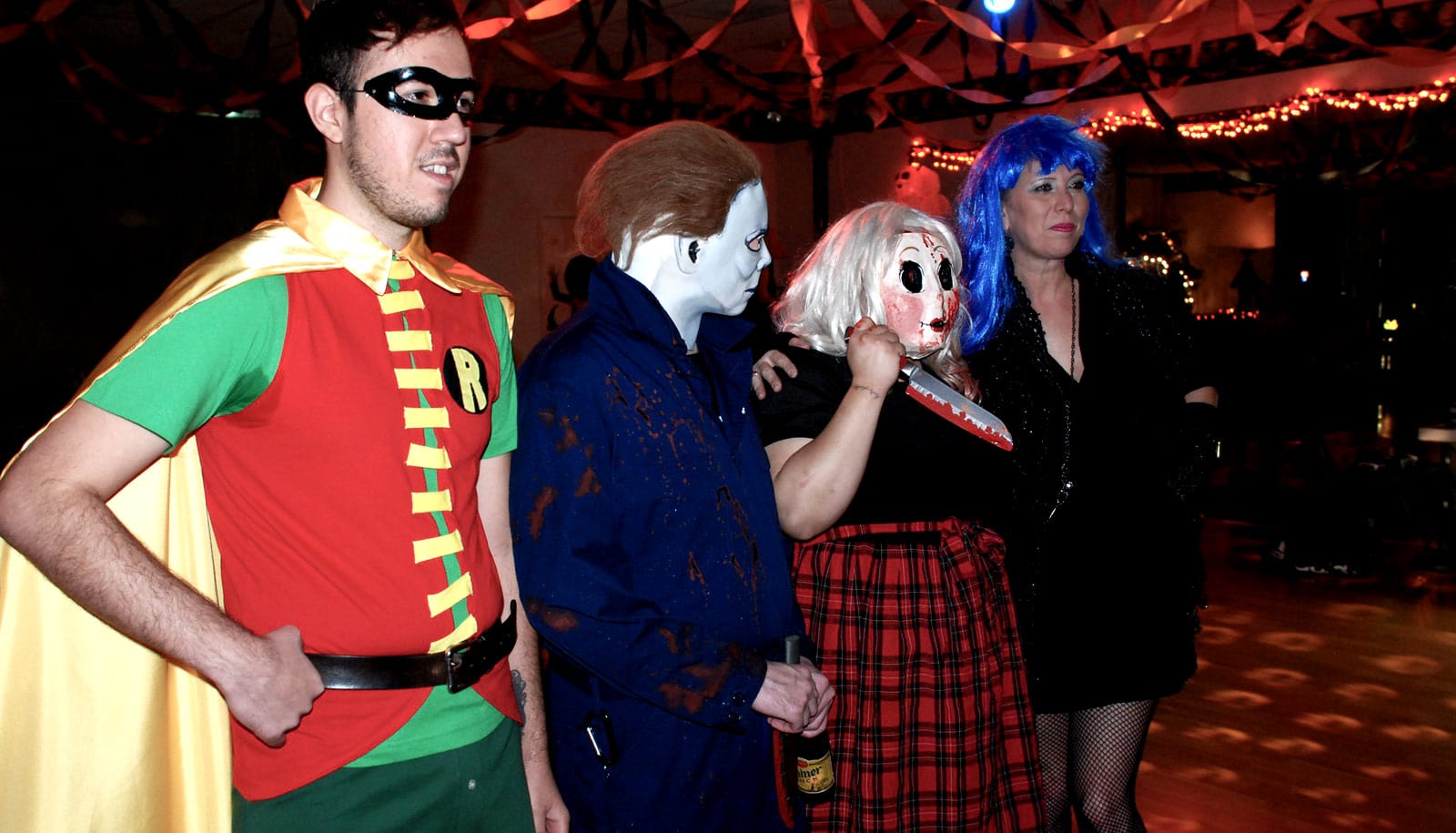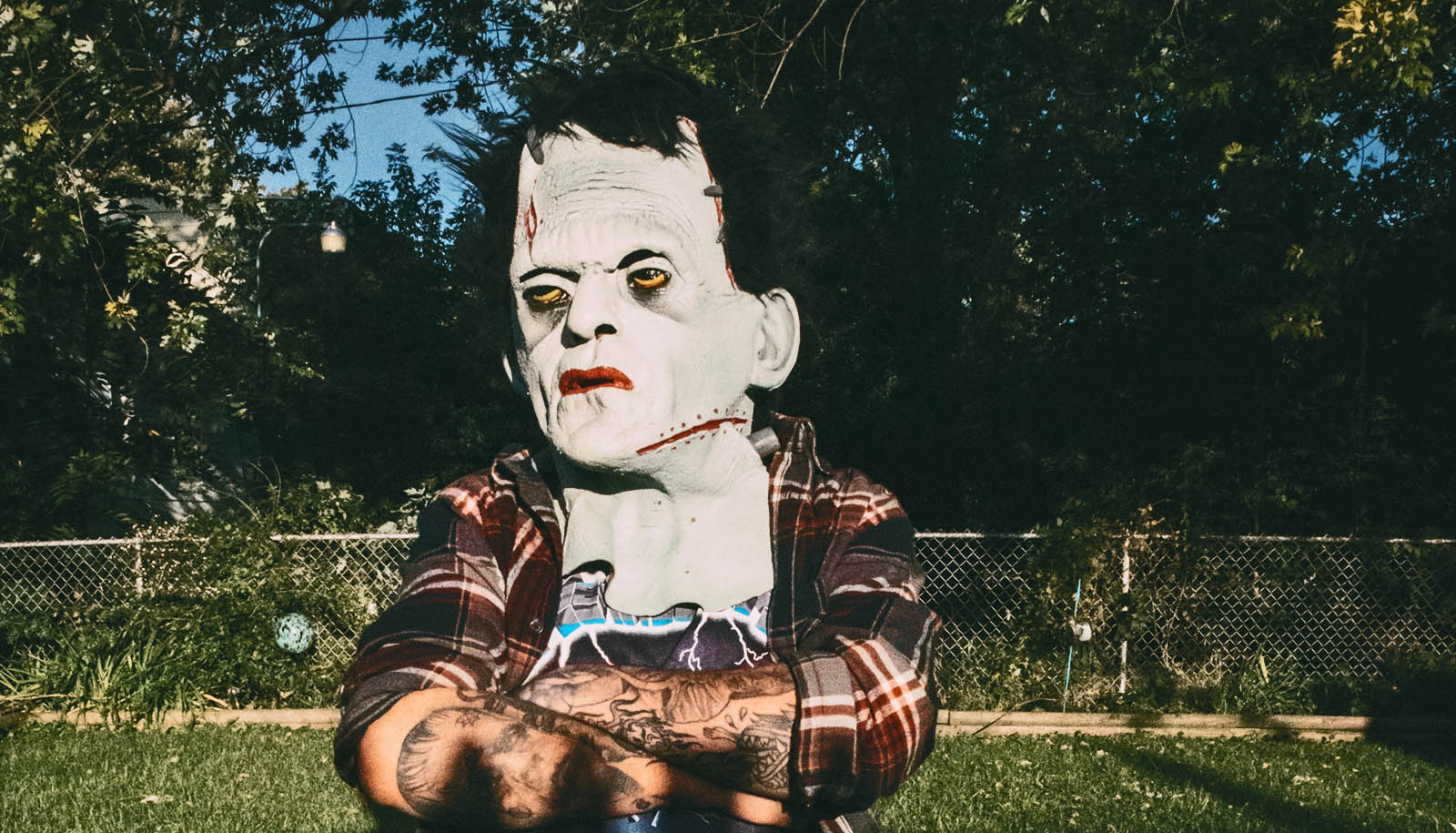The vampires, zombies, aliens, and other monsters on our screens represent different facets of humanity and help us make sense of concepts like good and evil and life and death, says professor Gregory Erickson.
Why do crosses repel vampires? What does the afterlife mean in a world of ghosts? Traditional religious affiliation has been on the decline since the 1950s in the United States. But as Americans have turned away from congregating, they’ve turned on their TVs, finding another forum for the supernatural in shows like The Munsters, Buffy the Vampire Slayer, and The Walking Dead.
In his book, Speculative Television and the Doing and Undoing of Religion (Routledge, 2023), Erickson argues that, far from just entertaining, TV and movies have allowed for “exploration that exceeds questions allowed within most religious communities or on mainstream news and documentaries.” From depictions of rituals in True Blood to standoffs between devotion and atheism in Battlestar Galactica, the spookiest elements of our favorite shows present viewers with nuanced and conflicting messages about faith and religion.
Ahead of Halloween, Erickson, professor at New York University’s Gallatin School, talks through the symbolism of some classic on-screen monsters and the theological questions they raise:
Vampires
Common associations: Blood, crosses, coffins, sunlight (or lack thereof)
On screen: Buffy the Vampire Slayer, True Blood
Religious themes and messages: Power in religious paraphernalia (e.g.,cross, holy water); vampires having angelic or godlike power; clash between good and evil
How we relate: “In these stories, vampires face this sense of immortality and so they’re forced to deal with living forever—what is life about?” Erickson says. “Humans are not immortal, but we do share that desperate desire to determine meaning in a world that doesn’t give you answers. What are we put here on Earth to do?”
Zombies
Common associations: disease, apocalypse, vacant stare, meandering
On screen: The Walking Dead, 28 Days Later, World War Z
Religious themes and messages: godless society, beginnings and endings
How we relate: “In a culture that perhaps doesn’t use religion to think about beginnings and endings, we need to find stories that help us do that,” Erickson says. “Zombies particularly help us think about endings, but also maybe beginnings a little bit—in the sense of wiping the slate clean and trying to build society from the ground level up. Classic zombies also connect to our fear of death—when someone turns into a zombie, the act in so many zombie narratives is to put them out of their supposed misery by killing them in one way or another, right? So the zombie becomes this sort of horrific afterlife that is rooted in a fear of death.”
Ghosts
Common associations: hauntings, unfinished business, contact with the living
On screen: Ghost Hunters, Paranormal Paparazzi, Ghost Whisperer
Religious themes and messages: narrow boundary between human and not human; meaning or existence of a soul; intersections of magic, science, and spirituality
How we relate: “Let’s think about time and space. Do we think about our experience as limited to our human body? Do we think about our experience as limited to time as we understand it?” Erickson asks. “Once we see this ghostly realm or imagine a ghost with a personality, that’s a being or a consciousness without a body. What does that mean, and how do we understand that? How do we understand sickness, illness? If this personality exists outside of the body, it helps us to think: Am I this body or am I something else? Does a ghost have a soul? Is that what a ghost is? How do we think about our identity without bodies?”
Aliens
Common associations: futurism, technology, war, contact
On screen: Battlestar Galactica, Doctor Who
Religious themes and messages: the future of religion, atheism, polytheism
How we relate: “Aliens are always familiar and yet can be impossibly other. An alien character can have language, rituals, social organizations, histories, and ethics that make us question why we think ours are normative or even why ours make sense. Good science fiction makes us question ourselves in ways that more realistic fiction cannot.”
Source: NYU



